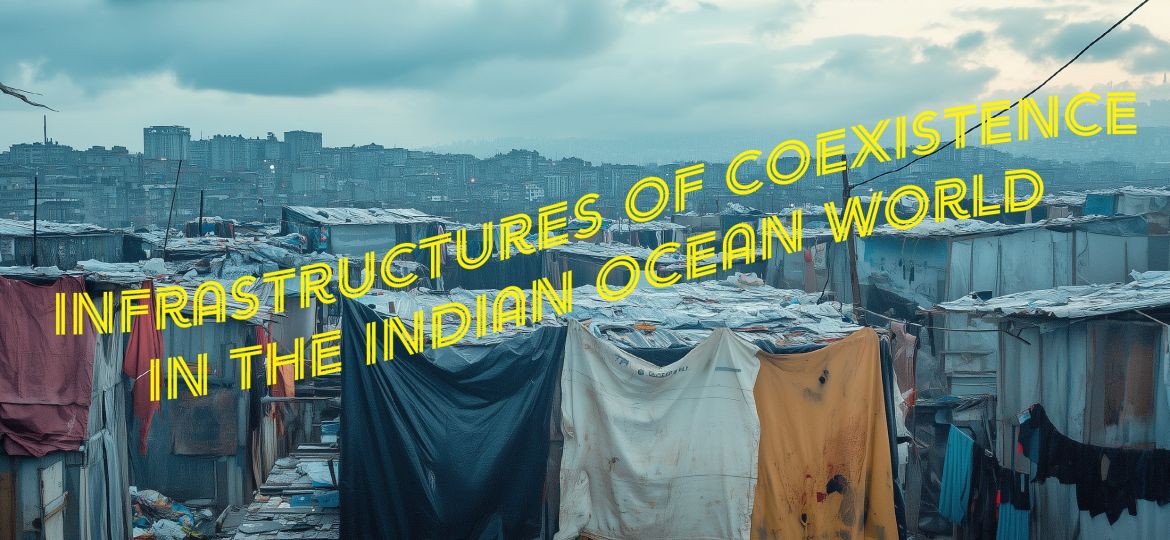
13-14 December 2024
Venue
KINDOWS International Symposium “Infrastructures of Coexistence in the Indian Ocean World”
Registration for participation: https://forms.gle/KbgDQrbanu695dCT8
Outline of the Symposium
Towards the end of his carrier, Bruno Latour used the term “critical zones” to refer to the dwelling places which human and non-human beings share. They are critical –indispensable – for the sustenance of various forms of life. They are also in critical condition, due to violent conflicts, exploitation, pollution, climate change, etc. This symposium is also inspired by Arjun Appadurai’s intervention, who argued for area studies based on “process geography” (as opposed to “trait geography”), which sees areas of human organization as emerging from various kinds of action, interaction, and motion – trade, travel, pilgrimage, warfare, proselytization, colonization, exile and so on. In this perspective, various ‘areas’ emerge through action, interaction, and imagination of various actors – including farmers, pastoralists, refugees, corporations, governments, international organizations – and depending on the issues that are foregrounded – such as deforestation, disaster mitigation, indigenous rights, and urban planning. Therefore, in this symposium, we not only focus on conflict between human groups (class, caste, ethnic, national, religious, and otherwise), but also look at infrastructure, ecological landscapes and various organizations and forms of governance as human-nonhuman hybrids, to explore the possibilities for peaceful coexistence and cohabitation in the Indian Ocean World.
Organizer
- NIHU Indian Ocean World Studies Project
Program
Day 1 (December 13)
11:00-11:10 Opening Remarks: Minoru MIO (National Museum of Ethnology)
11:10-13:00 Session 1: Environment & Infrastructure
Kennedy Mkutu AGADE (United States International University-Africa)“Pastoral Conflicts in Kenya’s Remote Drylands: Past, Present and Future Strategies for Peace”
Nikhil ANAND (University of Pennsylvania) “The Climate of Infrastructure”
Naoki NAITO (Tokushima University) “Landscape of Energy Transition in Sub-Saharan Africa: The Case of Pastoral Communities in Kenya”
14:30-16:20 Session 2: Conflict & Peace
Satoru KOBAYASHI (Kyoto University) “Rootedness and Network: A reflection on the reconstruction of Cambodian rural society since 1979”
Bayar Mustafa SEVDEEN (University of Kurdistan Hewlêr) “Unaccomplished Peace, Sinjar, and Its Neighbours: Five Years After Defeating ISIS”
Utako AOIKE(RIHN/Kyoto University), OYAMA, Shuichi (RIHN/Kyoto University), ASHIDA, Mizuho (Kyoto University) and Ibrahim MAMANE (DMN Niger) “Cleaning the City, Restoring the Land to Mitigate Conflicts for Niger’s Future Generations”
Day 2 (December 14)
10:30-12:50 Session 3: Citizenship & Infrastructure
Makiko KIMURA (Tsuda University) “The Changing Zone of Survival for Minorities: Migration, Citizenship and Xenophobia in Assam, India”
Crispin BATES (The University of Edinburgh/ Kyoto University) “Caste, Custom and Coexistence in Mauritius”
Ginu Zacharia OOMMEN (Kerala State Food Commission, Thiruvananthapuram, Kerala, India) “Brain Waste or Brain Gain: Exploring the Trajectories of Indian Student Migration”
Tatsuro FUJIKURA (Kyoto University) “Indigenous Rights and Hybrid Governance in Western Nepal”
13:50-14:30 Roundup Discussion & Closing Remarks

